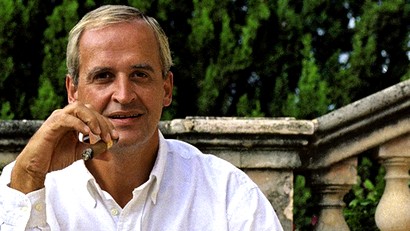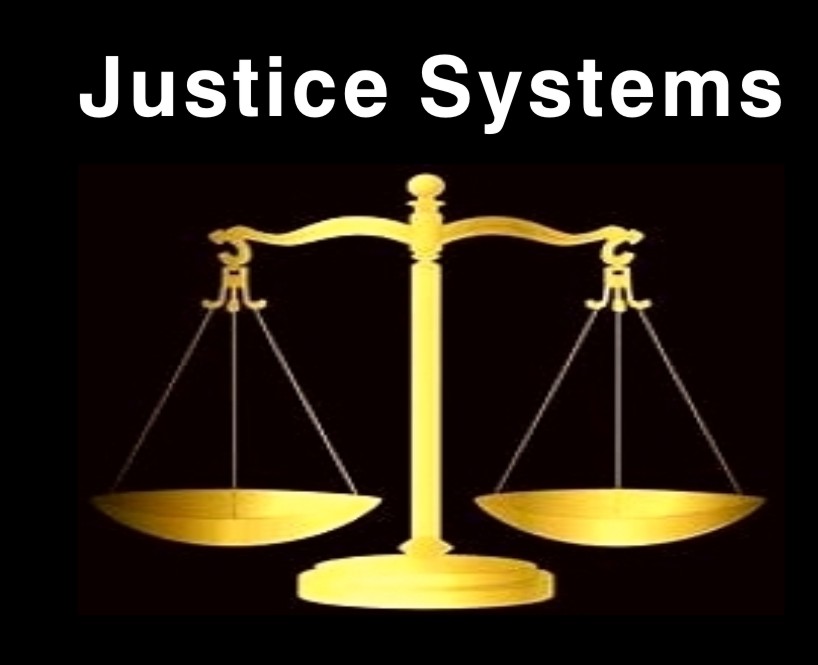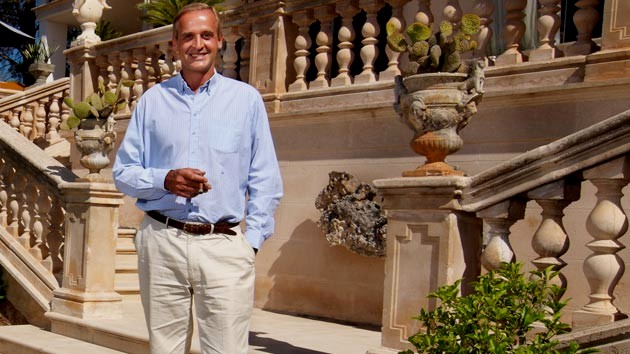
Category: Hoaxers: media groups
Knox’s Nasty-Prisons Hoax: NY Times Describes How Italy Leads The World In Rehabilitation
Posted by Our Main Posters

A classy restaurant in an Italian prison which inmates in training fully run
1. The Knox Picture Of Italian Prison Conditions
Three years ago Amanda Knox devoted 200 pages of her book to an extended horror story about her stay in prison.
Knox provided zero proof. Knox has never published her charges in Italian in Italy, so the rebuttals by those Knox maligned are not (yet) in.
But almost immediately English-language corrections and rebuttals started to flow. See also all these rebuttals here.
Knox was contradicted by her own lawyers who had visited her often and heard no complaints. She was contradicted by the US Embassy in Rome which monitored her often and heard no complaints. She was contradicted by Rocco Girlanda, an Italian Member of Parliament, who checked her conditions over 20 times (and then wrote a loving book) and reported no complaints. Her own parents reported no complaints.
Even so, one year ago, Knox reissued her notoriously dishonest book. It had been added-to, but not even one of the malicious claims was withdrawn.
Our main poster Chimera highlighted the lies throughout the entire book (over 400) and Posts #3 to #9 here are devoted to Knox’s prison lies.
2. The Real Picture Of Italian Prison Conditions
The Italian prison system was historically always very humane - bathrooms and sometimes kitchens attached to cells; TV in all cells; walk-around rights during the day; numerous group activities such as concerts and games; hair-dressing for women and even massage; and skills training for inmates in an occupation of their choice (Guede and Sollecito both completed degrees).
Around five years ago, largely because of immigrant crimes, the prison population (previously below 100,000 - in the US, California prisons alone hold almost twice that) began to balloon.
New prisons were built, with no expenses spared, and in these images you can see the result.
Stories of extreme over-crowding have gone away, and the New York Times profiles the new prisons and their programs of today.
For years, Italy has struggled with its prison system, as well as how to balance punishment with rehabilitation. Overcrowding had become such a problem that in January 2013 the European Court of Human Rights ordered the country to fix the system. [Actually the ECHR cannot “order” anything, and anyway the building program was already well under way.]
Italian lawmakers responded with more alternative measures for minor crimes. In 2014, Italy also repealed harsh drug sentencing laws enacted during the 1990s, similar to the “three strikes” laws in the United States. In 2014, Italy began releasing 10,000 inmates (of roughly 60,000) who had been convicted of minor offenses.
But the issue of how best to rehabilitate offenders “” and lower the recidivism rate “” remained difficult. Italy has long allowed inmates in medium-security prisons to move around the facilities during the day.
“The main problem has been that they do little during the day, which doesn’t help them at the present, nor for their future outside prisons,” said Alessio Scandurra, who works for Antigone, a nonprofit group focused on the rights of detainees.
The Bollate prison was at the vanguard of experimentation even before opening the restaurant. Under the director, Massimo Parisi, the prison offers an array of programs. Companies have work programs on prison grounds. Volunteers teach theater and painting. Carpentry skills are taught in workshops equipped with power drills and saws. Inmates maintain a stable of horses in the prison yard.
There is also an initiative involving a carefully vetted group of 200 inmates who are allowed to leave each day for jobs with an outside firm. Inmates travel without supervision on public transportation; they must check in upon arrival at work, and at other points during the day.
Mr. Parisi said only one inmate had failed to return at the appointed time, and he showed up a few days later.
The Times reporter follows this with what has to be a global first - a topnotch restaurant run by inmates right inside one jail.
Did The State Department Offer Assurances To Knox She Never Would Be Extradited?
Posted by Ergon

US Sec of State Kerry (discussing Snowden) really needs extraditions to work
1. Overview
This is the first of two posts on the real source of an increasing flow of anonymous but seemingly official State Department claims that Knox’s extradition is not in the cards
2. The Current Italy/US Extradition Treaty
As repeatedly explained here by posting lawyers the Italy/US treaty is deliberately written to exclude any politics.
If either nation has arrived at a guilty verdict of someone currently in the other nation by following its own laws, then the other nation deliberately has no legal option but to extradite them to serve their term.
So far neither nation has ever refused to do what the treaty says and so far politics has never intervened. That helps both nations in pursuing other extradition cases around the world.
3. Claims By An Anonymous Source
“Will Amanda Knox Be Dragged Back to Italy in Murder Case?” This was by Nina Burleigh in a cover story in Newsweek on March 19, 2015 quoting an anonymous source.
A State Department source tells Newsweek that diplomats in both Italy and the U.S. expect an extradition request to be denied: “I don’t think either Italy or the U.S. wants a major burr under our saddle in terms of relationships between our countries, and this would be that, if the Italians pushed it.” If they do, the source adds, there “is not any way” the U.S. will arrest Knox, nor will it have her declared a fugitive.
The elected Italian government in Rome is separate from the judiciary, and traditionally the two branches do not have warm relations. “I know the Italian government was rolling its eyes” over the prospect of the case reaching this phase, the State Department source says, adding that Rome faces “a real political problem” if the judiciary requests extradition. The American diplomat predicts the Italian court won’t ask to extradite.
It seems that ever since Amanda Knox was wrongfully acquitted by the Hellmann appeals court of Perugia in 2011 we have been inundated with unsourced reports that “the United States would never extradite Amanda Knox.
Going back several years to the Daily Mail, Guardian, The Express and various American media, they all seemed to be reading from the same script:
- She hadn’t received a fair trial.
- American public opinion would “˜never allow her to be sent back”.
- The Secretary of State would quietly prevail upon his counterpart in Italy to not request extradition.
And, as the final appeal of Amanda Knox and Raffaele Sollecito came up to the last stretch it seemed that these same hacks were repeating the same talking points, even though much has changed since 2011.
These were the basic points, reported over and over in the main stream media till it almost seemed like a guarantee. So I have been looking for the last three years to verify the truth of that. And, who made that promise, if any were made? These were the basic parameters of my search, and I had to tune out the background noise of “˜double jeopardy” and “˜dueling extradition experts”.
Then I had to look for the “˜unnamed source” quoted in all the news reports.
These possibilities came up:
- WA US Senator Maria Cantwell spoke to her colleague Sen. John Kerry of the Senate Foreign Relations Committee who spoke to his brother in law David Thorne, the former US Ambassador to Rome, who passed on a quiet message to the Italian Foreign minister. But would they ever speak on or off the record to reporters or like it very much if it was going to be bruited about?
- Mid-level Friends Of Amanda Knox like Anne Bremner and Judge Heavey had received vague assurances from Senator Cantwell; somehow extrapolated as iron clad guarantee that Knox would never be extradited, never mind there has not been any precedent I can find that would apply to a similar case like this.
- Someone in the Department of Justice and/ or State is feeding them shite.
- The FOA are making it all up. That last was my favourite, given that they are led around by people like Steve Moore, Bruce Fischer, and J. Michael Scadron.
4. My Search For The Truth
This has been an interesting journey, and as always, things seem to just come together at the last moment. It has helped that I have been watching diplomatic activity up-close all my life.
My father was in the Pakistani Foreign Service stationed in London, so, shortly after I was born, lived in the UK from age 0-3, then with the Pakistan Embassy in Tokyo from age 3-8. We were a cosmopolitan group of embassy brats going to St. Mary’s International School.
My friends were American, Iranian, Turk, Indian, East German, Canadian, New Zealand, points all over. Their parents were all diplomats and I made lifelong friends. My father could have received a posting as assistant to the ambassador to Washington D.C. after that but fate prevailed as he’d been stationed out 8 years and had to be rotated back to Pakistan.
Since that time I kept in touch with my friends and also developed this passion for International Relations and Geopolitics. Traveling to the US and other countries but also meeting over the internet, made many more friends at various levels of the State Department. Saw the changes there as respected career diplomats got replaced by interest groups and major donors to political parties. Such only went to choice postings, of course, but not second or third world countries, so I had many interesting discussions with them over the years.
The Wikileaks cables were a revelation as Embassy intercepts showed the thousand different ways diplomacy led to but also tried to prevent, war. I’d been reading them ever since they first came out so started searching for links to secret discussions with Amb. Thorne. Couldn’t find anything except what already was reported, so reporter Andrea Vogt’s FOI request find was a goldmine:
NEWLY RELEASED EMBASSY CABLES SHED LIGHT ON STATE DEPT HANDLING OF AMANDA KNOX CASE
By Andrea Vogt
FEBRUARY 13 “Newly released state department documents show the U.S. Embassy in Rome declared the Amanda Knox matter “Case Closed” in a cable to Washington just days after the American’s clamorous 2011 acquittal. The memo reveals wishful thinking on the part of some U.S. diplomats, who were only too eager to see the thorny case come to a clean close.”
In Update March 23, 2015 posted today, Andrea Vogt says this:
In a 2011 Italian embassy cable released as part of several Freedom of Information Act requests I’ve filed on this case (first published Oct 11, 2011) [US] diplomats in Italy mistakenly thought Knox’s acquittal in 2011 would bring to a close this complex and divisive international case. Italy’s Court of Cassation would prove them wrong, overturning her Perugia acquittal and ordering a second appeal in a different venue (Florence) which ended last year with a guilty verdict.
So is a political fix being attempted or already in? See my Part Two Conclusion to be posted next.
How Many Extraditions Do The US And Italy Refuse? Approximately Zero, When It’s To Each Other
Posted by Peter Quennell

[Ex-fugitive Florian Homm above and below in front of his palatial Mallorca Spain home]
The State Department and FBI collaborate more closely with their Italian counterparts than with almost any others in the world.
Italy is a very loyal political ally to the US and has helped out a lot diplomatically and militarily around the world. The FBI and their Italian counterparts in Rome have officers permanently embedded from one another and there are dozens of transactions going on all the time..
Extraditions both ways take place without fuss at the rate of a few a year, which the State Department and Justice Department are not inclined to fight. A couple of weeks ago, the Supreme Court in Rome declined the final appeal of fugitive swindler Florian Homm and sent him on his way to the US.
Homm had many millions to pay top lawyers to fight his extradition case. But he still lost.
The only extradition requests from Italy the US doesnt fulfill are the CIA kidnaping in Milan and Air Force Dolomites case.
It is the CIA and Pentagon overtly or clandestinely exercising special military privileges that is the cause of the two standoffs. NOT the Department of State, which has made clear it is not too thrilled.
Contrary to broad confusion in the US (fed by biased stories from Colleen Barry of the Associated Press) the Florence appeal is not a second or third trial of Knox.
It is a FIRST appeal, actually filed by Sollecito and Knox, on the same lines as any American first appeal, after the previous Hellmann appeal was furtively bent, and then scathingly annulled. Knox has been in provisionally guilty status since late in 2009.
So double jeopardy absolutely does not apply.
The one REAL difference between this appeal and any American appeal, which seems over Colleen Barry’s head, is that this appeal request was automatically allowed. Any American appeal judge (except Heavey, who serially gets the hard facts wrong) would have thrown the flimsy appeal grounds out.
It may take up to a year, if Amanda Knox chooses to waste more big bucks on lawyer fees - their batting record for that is pretty dismal so far, though, and a confirmed-guilty verdict in Florence next week might be only the start of more legal strife. False claims in her book will soon see her back in court.
But it seems 100% likely that Italy will “get their man”. To a rapidly increasing number of Americans, Italy’s gain would also be the US’s gain.
Interesting Tilts Of Marcia Clark And Alan Dershowitz Toward Educated, Informed Italian-type Juries
Posted by Peter Quennell
Neither of these heavy hitters are saying to abolish the common-law system of not placing professionals in the jury room.
Or for that matter to swing over to a semi-professional and seemingly less error-prone system like Italy’s, where the judges stake their own reputations on their verdict and the written explanation that must follow.
But both found the Casey Anthony non-guilty jury verdict a bit peculiar, and Alan Dershowitz specifically suggests that semi-professional jury systems (like Italy’s) tend to be more accurate.
Above, the former prosecutor Marcia Clark commenting a couple of weeks ago on why the media boosted the Casey Anthony trial into such a “fry her” phenomenon. And here in the Daily Beast she comments on why that media angle had no sway over the jury.
For one thing the evidence and scenario had some major gaps. And for another:
[American] jury instructions are so numerous and complex, it’s a wonder jurors ever wade through them. And so it should come as no surprise that they can sometimes get stuck along the way. The instruction on circumstantial evidence is confusing even to lawyers. And reasonable doubt? That’s the hardest, most elusive one of all. And I think it’s where even the most fair-minded jurors can get derailed.
How? By confusing reasonable doubt with a reason to doubt. Some believe that thinking was in play in the Simpson case. After the verdict was read in the Simpson case, as the jury was leaving, one of them, I was later told, said: “We think he probably did it. We just didn’t think they proved it beyond a reasonable doubt.” In every case, a defense attorney will do his or her best to give the jury a reason to doubt.
“Some other dude did it,” or “some other dude threatened him.” But those reasons don’t necessarily equate with a reasonable doubt. A reason does not equal reasonable. Sometimes, that distinction can get lost.
Former Harvard Law professor Alan Dershowitz went deeper into jury principles on the Piers Morgan interview show on CNN last night.
DERSHOWITZ: Well, if you want justice, don’t look to the criminal law system. That’s not its job. Its job is not to produce a just result. Its job is to produce a legally correct result.
We have a system that says better 10 guilty go free than one innocent be wrongly confined. If you have a 60 percent likelihood a person did it, you must acquit. If you think he probably did it, you must acquit. If you think he almost surely did it, you must acquit.
We acquit lots of guilty people, and that’s the right thing to do. When we convict an innocent person, that’s the wrong thing to do. That’s our system of justice. Many people don’t like it. Many people think the opposite, that we have too much popular justice, too much dependent on elected prosecutors, elected judges, elected officials.
The French, for example, don’t understand our stem with a case that’s going on now with the rape in New York. They don’t understand our system. They say it’s much too popular. In France, there’s a professional system. They have professional judges, professional prosecutors, professional jurors.
We’ve opted for a much more democratic system, and it means that in the end you’re going to be dissatisfied with a lot of verdicts. Just don’t expect too much from our legal system. Don’t expect truth. Don’t expect justice, because that’s not what it’s supposed to give you.
It’s supposed to give you a legal process that only convicts if admissible evidence proves the case beyond a reasonable doubt. If you don’t like that system, I’ve got plenty of other systems for you that are more accurate. The Chinese system, the military justice system, the Russian system. Many European systems. But the American system errs on the side of freeing the guilty instead of convicting the innocent.




